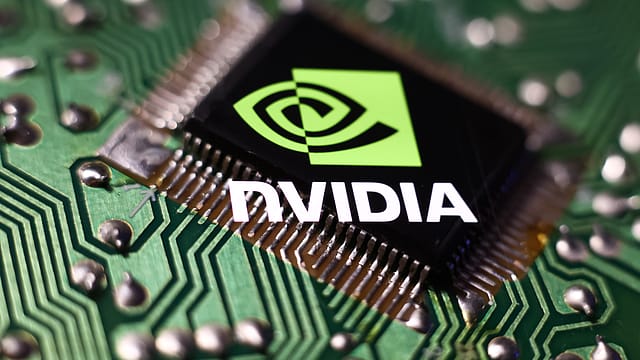DeepSeek AI stocks: How Nvidia meltdown can prove dangerous for Indian mutual funds
ADVERTISEMENT

Monday morning began with the blues for technology stocks, especially for Nvidia, the semiconductor darling synonymous with the AI revolution given its near monopoly in AI chips, as its stock plunged over 17% during early trading hours.
The culprit? A Chinese artificial intelligence startup named DeepSeek, whose groundbreaking innovation has sent shockwaves through the tech world. For years, Nvidia’s chips was seen as the gold standard for training AI models, their premium offerings deemed indispensable in the AI arms race.
But DeepSeek’s disruptive breakthroughs — achieved using constrained cheaper Nvidia chips — has raised troubling questions about Nvidia’s growth story. The fallout: Indian mutual funds which have exposure to the stock in their global technology and fund of funds are going bear the brunt in the coming days.
As of December 2024, top six Indian mutual funds held a combined ₹1,546 crore exposure to Nvidia across six major funds. These funds, focused on the Nasdaq 100 and S&P 500 indices, had benefited from Nvidia’s meteoric rise over recent years, driven by its pivotal role in powering AI technologies. Yet, this very concentration has now become a source of significant pain. DeepSeek’s success in developing competitive AI models using lower-capability Nvidia chips — a feat achieved at just a fraction of the costs incurred by U.S. tech giants — has fundamentally shaken investor confidence in Nvidia’s moat and long-term trajectory.
These funds, with their heavy reliance on Nvidia and broader tech exposure, will face substantial challenges owing to the stock’s meltdown. With Nvidia accounting for up to 10.94% of individual fund portfolios and tech sector allocations exceeding 50% in many cases, the pain for MF investors will be far more severe.
DeepSeek: Proverbial Needle That Broke AI’s back
DeepSeek’s rise has fundamentally challenged Nvidia’s long-standing dominance in the AI ecosystem. The Chinese startup achieved a technical breakthrough by developing a competitive large language model using less powerful Nvidia H800 GPUs—chips designed to circumvent U.S. export controls.
The implications for Nvidia are profound. For years, the company’s dominance rested on two key advantages: its CUDA programming framework, which entrenched Nvidia chips as the default choice for AI developers, and its ability to combine multiple GPUs into powerful virtual machines. However, DeepSeek’s ability to achieve superior results with optimized infrastructure and algorithmic ingenuity has raised doubts about the necessity of Nvidia’s premium hardware. If other players follow suit, Nvidia’s growth story may face significant headwinds, undermining its valuation and dragging down tech-heavy funds reliant on its performance.
The Ripple Effect on Indian Funds
For Indian mutual funds, the meltdown in Nvidia’s stock price is a stark reminder of the risks associated with concentrated exposure to high-growth tech stocks. Funds such as Motilal Oswal Nasdaq 100 FoF, with ₹553 crore or 8.39% of its portfolio tied to Nvidia, and Kotak Nasdaq 100 FoF, with ₹298 crore or 8.68% exposure, are particularly vulnerable to the correction. The Mirae Asset NYSE FANG+ETF FoF, which holds 10.4% of its portfolio in Nvidia, faces an even greater challenge due to its higher allocation to the stock.
The pain extends beyond direct exposure to Nvidia. The broader tech sector, heavily weighted in these funds, has been hit hard by the ripple effects of DeepSeek’s disruption. Other semiconductor companies like ASML, Broadcom, and Micron have seen their stock prices decline, reflecting a broader reassessment of valuations in the sector. With tech stocks trading at historically high price-to-earnings multiples, any disruption — such as DeepSeek’s breakthrough — can lead to even sharper corrections.
The immediate impact of Nvidia’s meltdown will be visible in the net asset values of these funds, which are likely to experience heightened volatility. Retail investors may find this unsettling, leading to potential redemption pressures. Further, the high exposure to Nvidia and other tech giants such as Microsoft and Alphabet underscores the inherent risks of concentration in a single sector. While such strategies can deliver outsized returns in bull markets, they amplify losses during corrections.
As investors reassess valuations, other major tech stocks may come under pressure, further weighing on funds with significant exposure to the Nasdaq 100 and S&P 500 indices. Fund managers may face liquidity challenges as redemption requests rise. Rebalancing portfolios to mitigate Nvidia’s impact will also prove difficult, given the interconnected nature of the tech sector and the limited alternatives within these indices.
While the AI needle has shifted, but for Indian mutual funds, the load just got heavier.